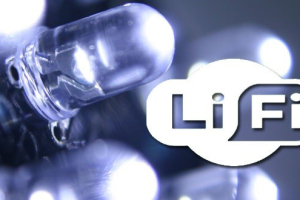Tired from your slow wireless connection? New technology is here to help. For the first time, Li-Fi has been tested in a working office. Results reveal its amazing wireless speed.
Li-Fi can deliver internet access at lightning speed at more than 1 Gbps (gigabit per second). Researchers also said it is 100 times faster than the traditional Wi-Fi. Moreover, lab tests have shown theoretical speeds of up to 224Gbps.
The new technology uses the visible light spectrum rather than radio waves. It requires a light source like LED bulb to deliver wireless connections.
The speed of Li-Fi was put to test this week by Estonian start-up Velmenni, in Tallinn.
"We're now carrying out a few pilot jobs within different companies where we can employ the VLC (visible light interaction) technology", said Deepak Solanki, CEO of Estonia-based tech firm Velmenni.
The data from Li-Fi was sent by a binary code from flashing LED lights on and off - creating a Morse code. In the recent test, professionals took Li-Fi out of the research for the first time, screening it in offices and professional situations. The office environment is perfect for testing this new wireless technology.
Using a photodetector and light bulb as a source, Li-Fi will be a blessing for all internet savvy people and will also be a much cheaper option.
The term Li-Fi or Life fidelity was first coined by Professor Harald Haas of Edinburgh University. Haas demonstrated the technology at a TED (Technology, Entertainment, Design) talk in 2011. His talk has now two million views in Youtube.
One of the good things about Li-Fi is that it does not interfere with other radio signals, unlike Wi-FI. The latest technology could be use in aircraft and concert halls.
However, some experts do not believe Li-Fi will phase out Wi-Fi. The technology cannot be use outdoors in direct sunlight because that would interfere with the data transmission. Also, Li-Fi can't travel through a wall so it is limited in a certain area and can't be used in a walled office building and halls.
For Wifi, it travels from a few meters to many kilometers. It usually has a range of around 30m; special Wi-Fi networks can reach more that 275 km in distance. This can be achieved by creating special Wi-Fi range extenders.
As of now the Li-Fi technology is not available worldwide, for now here are some facts about Wi-Fi.
Wi-Fi performance dramatically drops once more devices connect to it. Theoretically, many routers announce that they can support up to 255 devices connected to a router while in reality an internet connection will be near unusable at this point.
Stay tuned with our website for the latest update about Li-Fi, which could be available in the next couple of months.

















